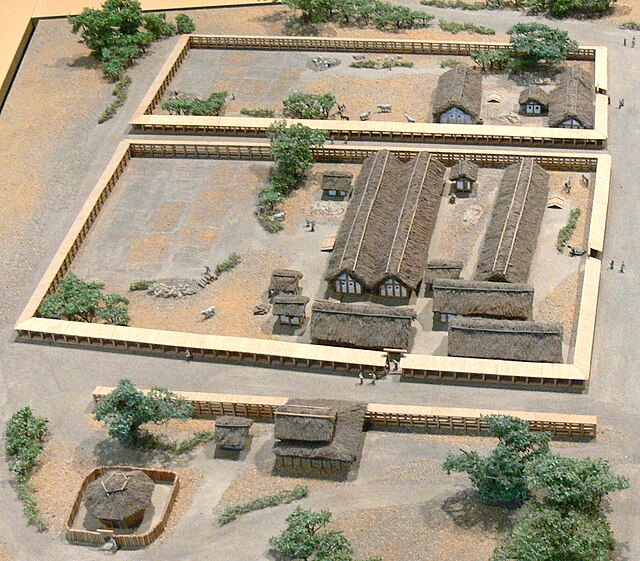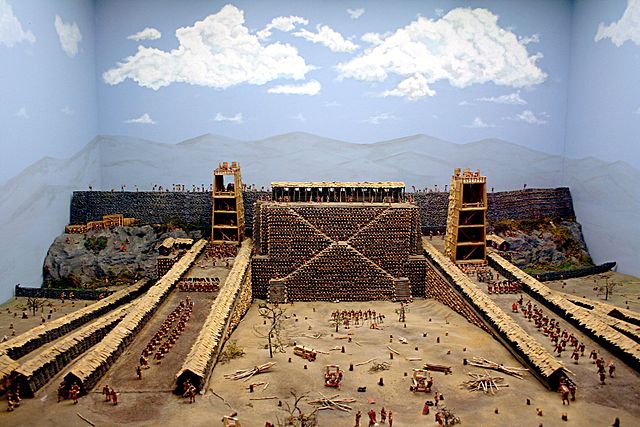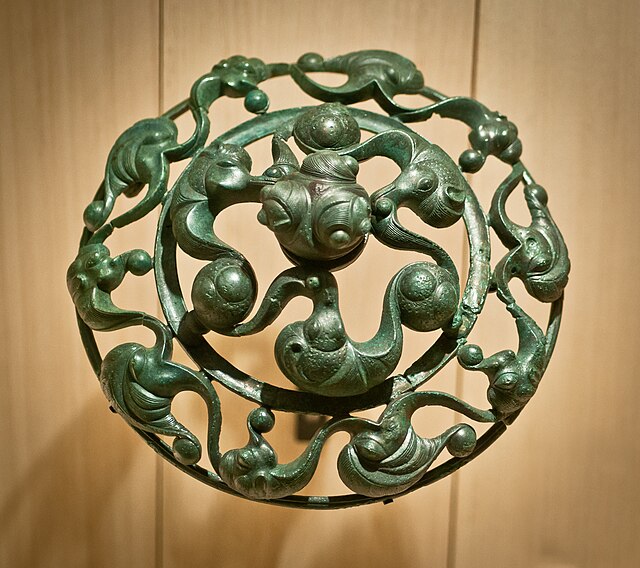An oppidum is a large fortified Iron Age settlement or town. Oppida are primarily associated with the Celtic late La Tène culture, emerging during the 2nd and 1st centuries BC, spread across Europe, stretching from Britain and Iberia in the west to the edge of the Hungarian plain in the east. These settlements continued to be used until the Romans conquered Southern and Western Europe. Many subsequently became Roman-era towns and cities, whilst others were abandoned. In regions north of the rivers Danube and Rhine, such as most of Germania, where the populations remained independent from Rome, oppida continued to be used into the 1st century AD.
Oppidum
Murus Gallicus, illustration
Part of the Celtic oppidum of Manching, Germany
Part of the oppidum of Manching
The La Tène culture was a European Iron Age culture. It developed and flourished during the late Iron Age, succeeding the early Iron Age Hallstatt culture without any definite cultural break, under considerable Mediterranean influence from the Greeks in pre-Roman Gaul, the Etruscans, and the Golasecca culture, but whose artistic style nevertheless did not depend on those Mediterranean influences.
Agris Helmet, France
Swords and helmets from Hallein, Austria
Reconstruction of the siege of Avaricum, France, 52 BC
Bronze chariot fitting from Roissy, France








